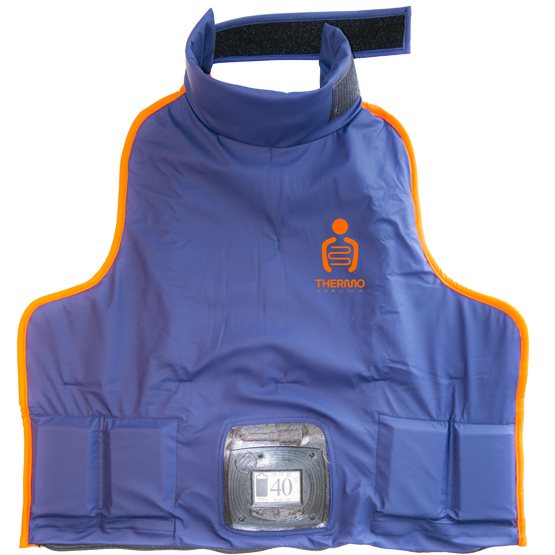
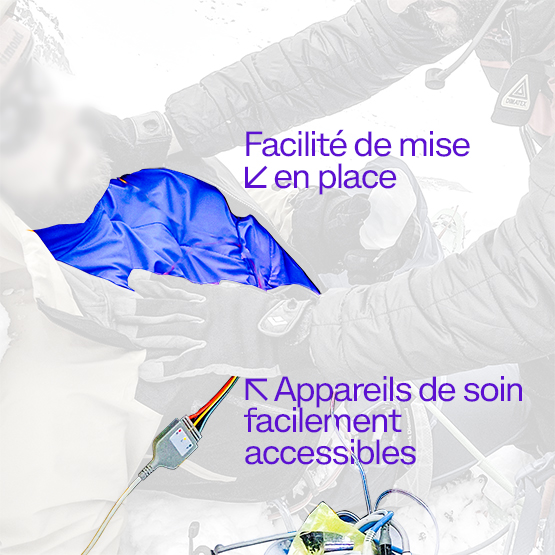
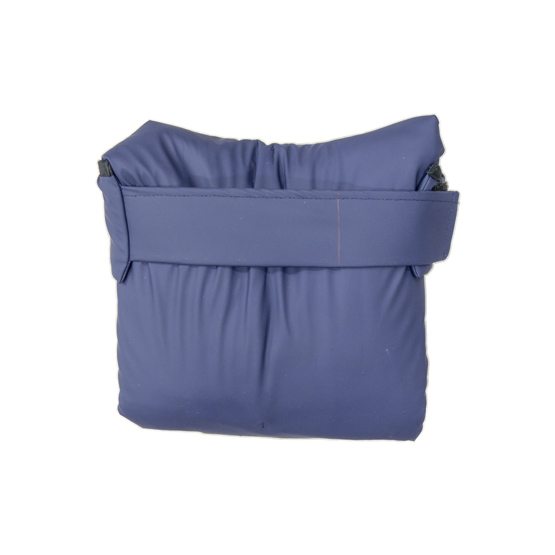
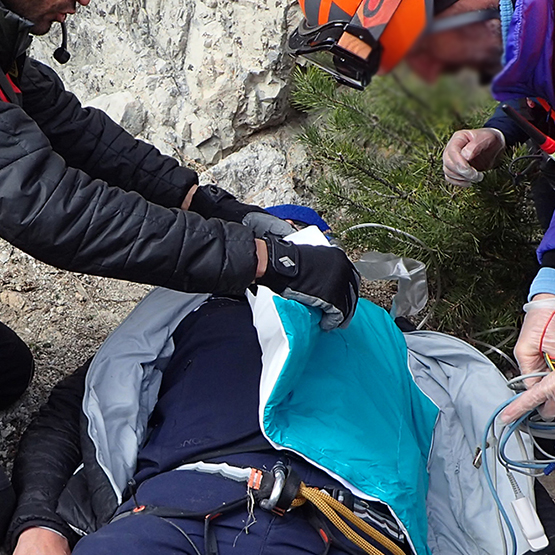
For all types of rescue operations, anywhere in the world.
. Designed for out-of-hospital doctors and first-responders ;
. Can be used in all situations (road, sea, mountain, snow, rain, etc.) ;
. Lightweight (approx. 1kg) and easy to carry ;
. Quick and easy to set up ;
. Refillable and reusable after disinfection ;
. Quick and pleasant sensation of warmth for the injured person ;
. Effective fight against hypothermia ;
. Reassuring sensation and reduced stress ;
. Less shivering ;
. Analgesic effect.
. Robust, waterproof fabric that can withstand the challenges of the field and can be reused after disinfection.
. A powerful electric heating system, focused on vital organs and the neck (the "core"), providing a temperature of up to 40 degrees.
. Built-in rechargeable batteries that last up to 4 hours.
. A control system combining safety and intelligent battery management.
. An intuitive interface that displays the temperature and lets you adjust the heating level to suit the situation.
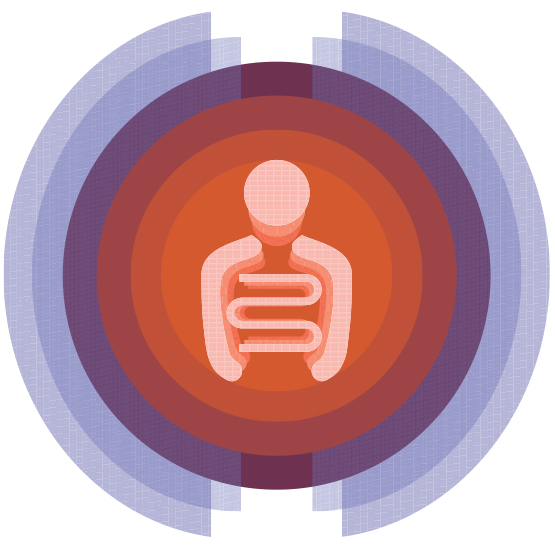
The rescuer opens the victim's clothes without having to undress them completely.
The rescuer unfolds the breastplate and fastens it around the neck using the Velcro fastener.
If necessary, a second rescuer holds the victim's head to ensure the head-neck-torso axis is maintained.
The breastplate is positioned on the front of the trunk as close as possible to the body.
If the victim is lying on their stomach or in an unusual position, such as when incarcerated, the breastplate can be positioned on the accessible parts of the body, providing immediate comfort while waiting for it to be positioned correctly.
Once the breastplate is attached, the rescuer switches it on and selects the heating setting.
The clothes can then be closed.
The temperature is set at 40°C, but depending on the victim's comfort, climatic conditions or whether they are positioned closer to the body, temperatures can be set at 30°C and 35°C.
In the event of helicopter transport, the breastplate does not fly off, it remains fixed.
At the end of the operation, the breastplate is disinfected, stored in its bag and recharged.
- Decreased myocardial contractility and arrhythmias ;
- Worsening of haemorrhages (x 2.5 if the temperature is below 34°C) ;
- Increased rate of pneumopathy in trauma patients.
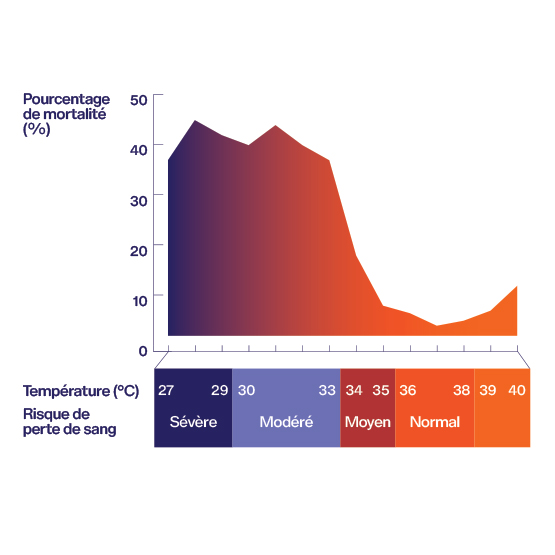
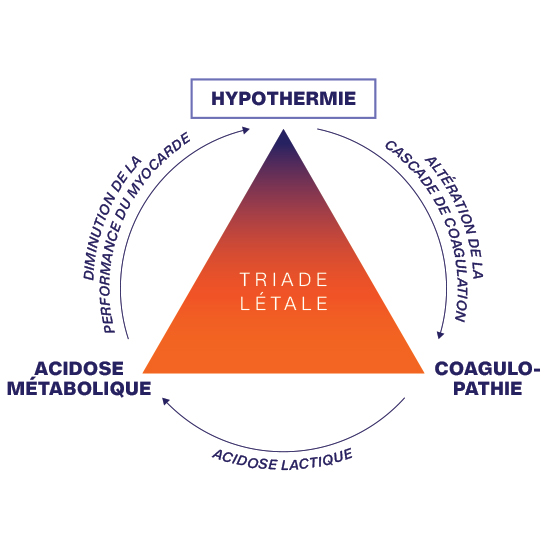
Along with acidosis and coagulopathy, hypothermia is part of the lethal triad feared by doctors and which worsens the prognosis of serious trauma victims.
Rémy Bergon, a helicopter winching flight mechanic/engineer in the Gendarmerie, and Thomas Spadoni, an emergency doctor and mountain rescuer, worked together for ten years in Briançon, in the Hautes-Alpes region.
During their work, they noticed that many seriously injured people were still experiencing hypothermia, despite the rescue teams' efforts to prevent it. They realized that the methods used by first responders to prevent hypothermia were not effective enough.
To address this issue, they came up with a solution focused on warming the core of the body, which is the most effective and safest way to prevent collapse caused by re-warming. This solution concentrates heat specifically on the trunk and neck vessels.
Their idea was promising, and they quickly found the technology to support it. However, they also recognized the importance of creating a practical and efficient tool that would meet the needs and limitations of first-responders. Therefore, they conducted extensive research on its ergonomics and developed it with rigorous specifications in mind.
What is accidental hypothermia ?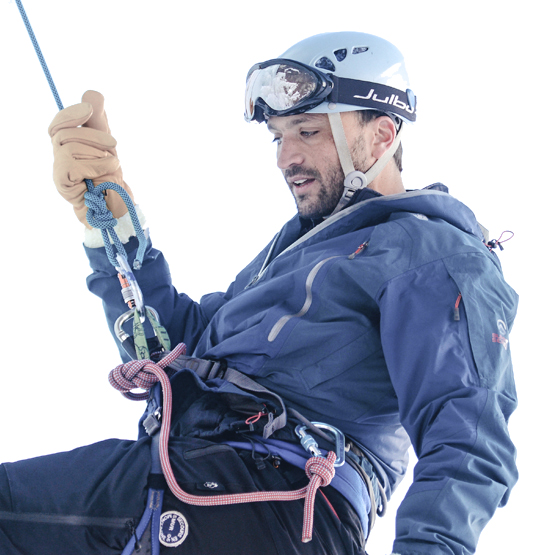
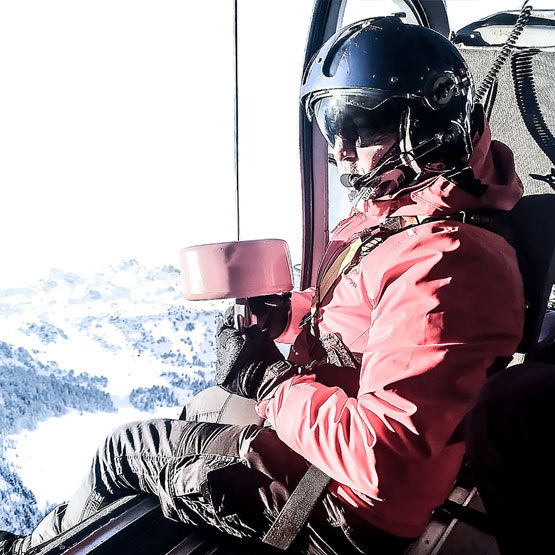
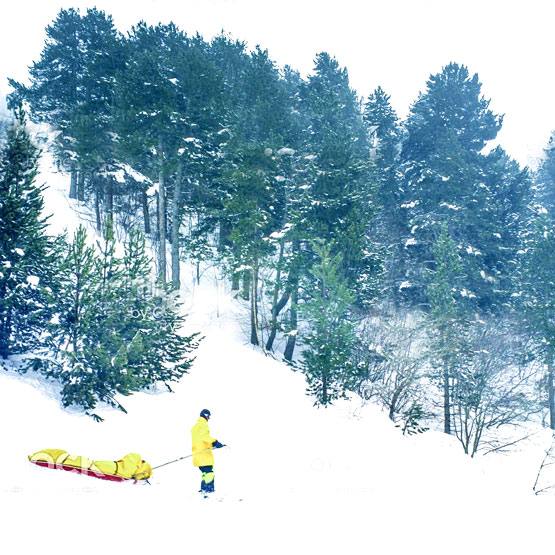
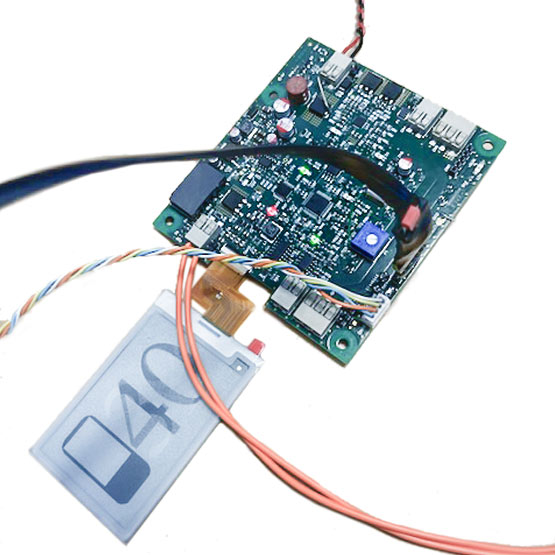
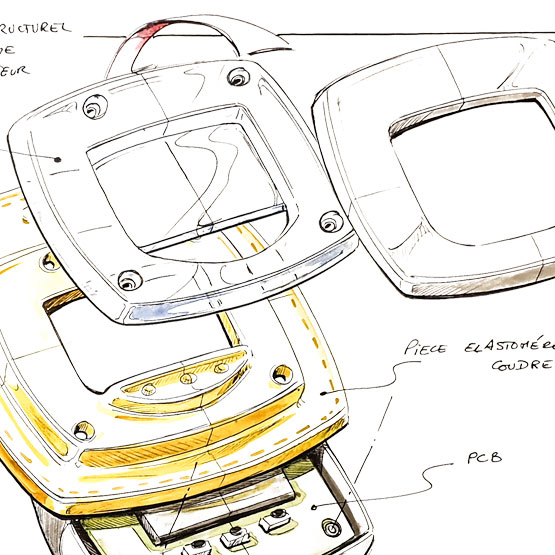
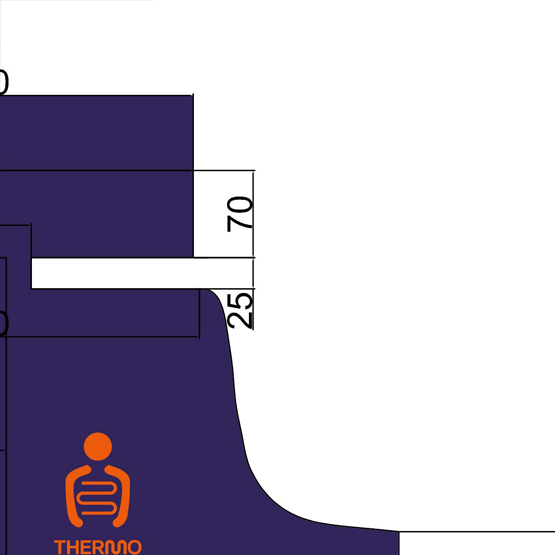
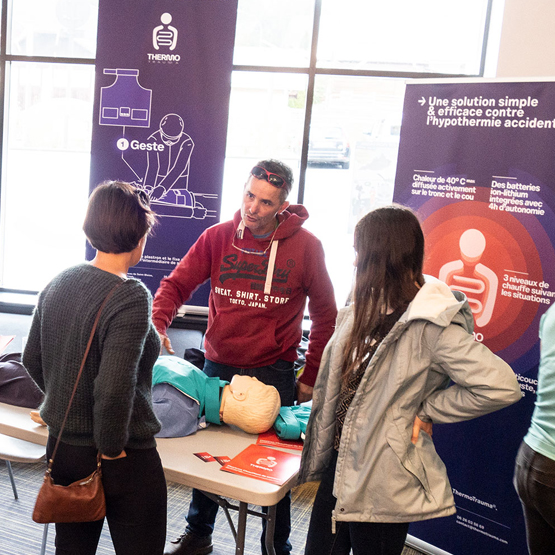
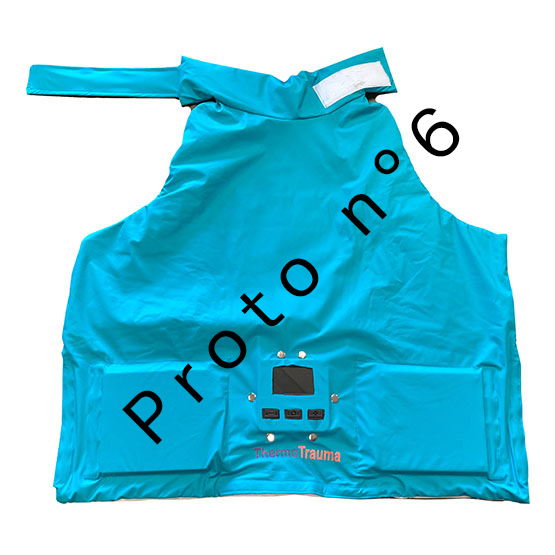
After two years of research, working alongside experts in heating solutions and medical textiles, Rémy Bergon and Thomas Spadoni have developed a heated breastplate. This breastplate is equipped with electric resistances powered by batteries that last for up to four hours, providing sufficient coverage for most rescue interventions :
- Compact and lightweight: The breastplate is designed to be portable and easy to carry, enabling its use at accident scenes regardless of weather conditions.
- Easy application: It can be easily fitted without causing discomfort or requiring extensive undressing of the victim.
- Integration with Existing Rescue Resources: the breastplate seamlessly fits into the rescue process without interfering or causing delays with other rescue equipment such as Ked, monitoring devices, cervical collars, shell mattresses, AEDs, etc.
- User-Friendly Interface: It features an intuitive interface with a screen displaying essential information and a three-level heating temperature setting: 30, 35, and 40°C
- Durable and Easy to Clean: The breastplate is made of waterproof and highly resistant fabric that can be easily cleaned and disinfected using standard hospital detergents.
- Convenient Storage: It can be folded and stored easily, allowing access to the battery connectors for quick recharging without removing them from their housing. This ensures that the breastplate is ready to be used promptly.
Affordability was a crucial consideration to ensure that this life-saving tool can be accessible and used by all individuals involved in first aid procedures : First responders, red cross, doctors, armed forces services
The Thermotrauma battery heated first-aid breastplate : a breakthrough in Emergency Medicine.
In emergency situations, time is precious, and the resources available to first responders are often limited. It is crucial to quickly and effectively rewarm victims to prevent further harm. With this goal in mind, Rémy Bergon and Dr Thomas Spadoni embarked on a journey that left no compromises when it came to medical and practical aspects. We also strived for a localized approach throughout the production chain.
To achieve this ambitious vision, the team was strengthened by the expertise of Franck Fauriel, a dedicated first-aid rescuer with 20 years of experience, and Pierre Sévila, an engineer and effective communicator. Together, we established Thermotrauma and made a significant breakthrough in emergency medicine possible.
After two years of intense dedication and hard work, we are proud to introduce the Thermotrauma battery heated first-aid breastplate. This innovative solution is designed to provide rapid and efficient rewarming for victims in need.
See the breastplate here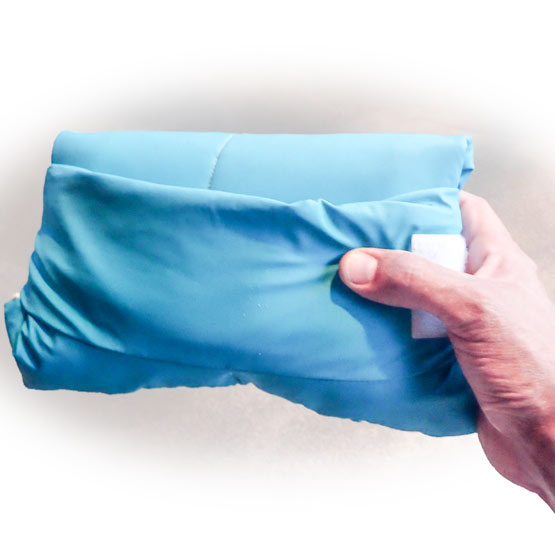

Partner – President.
remy@thermotrauma.com +33 6 15 80 59 20
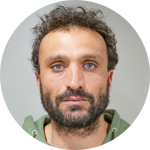
Partner – Project leader.
thomas@thermotrauma.com +33 6 26 03 56 69

Partner - Product development
franck@thermotrauma.com +33 6 73 66 18 86

Partner – Industrialisation, marketing, commercial network
pierre@thermotrauma.com +33 6 77 32 54 30
Contact us for more information.
contact@thermotrauma.com
06 26 03 56 69
12 Hameau de Saint-Blaise,Le Rustique,
05100 BRIANCON